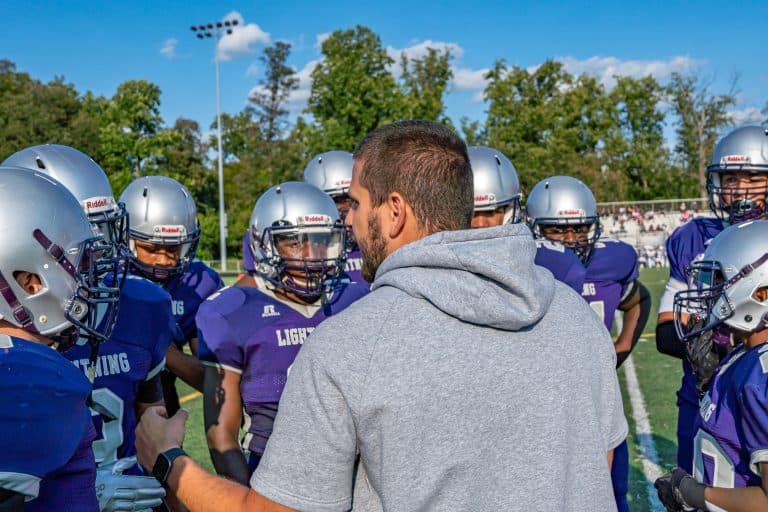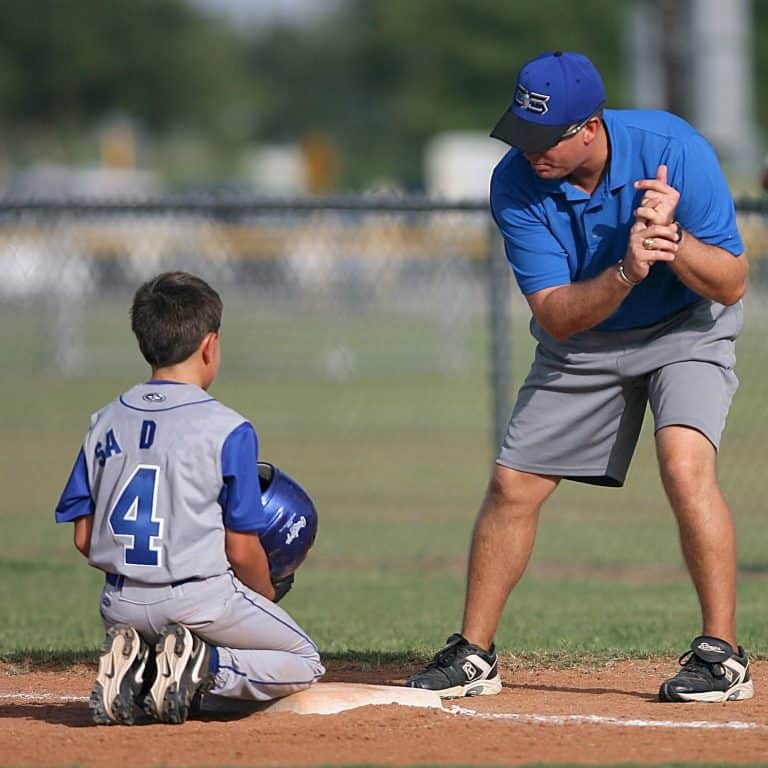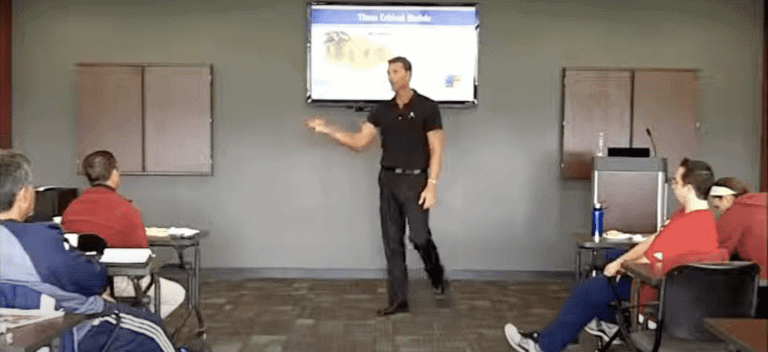A New Model for Athlete Well-Being
When athletes work with 3C Counseling and Performance, they are working with far more than a mental health practice. Instead, they join a space intentionally shaped by someone who has lived every dimension of the athletic journey. Founder, Meghan Skelton, Licensed Clinical Social Worker, former Division I volleyball athlete, long-time coach, and parent of competitive players, has created a truly holistic ‘360 approach’ to athlete development.
“I think it’s unique to have somebody that’s been on all sides,”
Meghan explains.
“I've been the Division I athlete, I’ve been the Head Coach, I'm the parent of a high-level player, and I'm a therapist with a true mental health background… having these multiple dimensions as well as a coaching background is very helpful because I'm able to see it from their perspective.”
Her multifaceted experience has shaped a practice that blends clinical mental health care, mental performance training, and systems-level consulting into one integrated framework.
A Life in Sport, a Career Devoted to Well-Being
Meghan’s commitment to athlete mental health began long before founding 3C Counseling and Performance. Raised in a sport-centered family, volleyball became her safe place, a source of identity, confidence, and community. But after earning her place at Sacred Heart University, a significant shoulder injury changed everything. Facing the challenges of a painful injury firsthand, Meghan discovered how vital mental health support is for athletes, an insight that would shape her career.
“I had originally tore my rotator cuff my Junior year in high school. In my sophomore season playing in college I remember hitting a ball and my arm dropping. At the end of the surgery I remember my surgeon telling me the damage is and was extensive and that playing again was not in the cards. I replied to him we have 9 months to get until I need to be ready, and was able to play two more years but in incredible pain.”
“The pain and isolation in the recovery process drew me seeking out mental health support to help deal with my depression and feelings of isolation. I reached out to therapists because I felt a loss of identity and not being with my teammates on the court and making an impact. I was met with therapists who didn’t understand and would say, ‘maybe we need to say goodbye because all things come to an end, or you can’t play sports forever.” I felt very misunderstood, frustrated and mentally struggled through my recovery process.”
After college, Meghan began a coaching career as the Head Coach for Fairfield Ludlowe High School’s Falcons from 2006 to 2021. At the same time, she built a career supporting adolescents with trauma, eventually becoming the Lead Clinical Social Worker at Weston Public Schools. From 2016 to 2019, she served as a Fellow at the Yale Center for Emotional Intelligence, helping implement emotional-intelligence frameworks across K–12 schools.
Still, the call back to her journey as an athlete never left. 3C Counseling and Performance, Counseling, Coaching, and Consulting, became the place where all her worlds now intersect, and her understanding that every experience is unique and everyone’s feelings are unique.
She shares,
"The most important and most lacked thing in therapy is the relationship and needing to be understood. If you can't have that connection, then you cannot achieve optimal growth and insight. For my athletes it starts off with who are you outside of your sport? And that's a big question that a lot of athletes haven't considered. What are my goals and areas of roadblocks."
“I’m really passionate about proactive skills for athletes, not just the reactive once we hit the roadblock… I’m all about equipping my clients with life skills,” she adds. “To be the best expert on you.”
Supporting Athletes Through Identity Loss, Burnout, and Growth
Meghan uses DISC to support athletes navigating both high-stress crisis moments and proactive performance goals.
For those grappling with identity or life transitions, DISC helps them answer the most critical question:
“Who am I outside of my sport?”
From the mental health aspect, Megahn shared that often people want to talk about what they want to do, could be doing, or should be doing. Adding, “When you can actually look at your behavior without the emotions behind it, that’s our roadmap… It’s a way of just taking out the defense mechanisms and getting right to the point.”
Continuing she highlights, “Everybody has behaviors. Behaviors are not inherently good or bad, however, there’s consequences to them. DISC allows us to really just neutrally take a look and then grow areas that are also really good things that maybe we haven’t watered enough and nurtured enough to get to be our best self.”
For athletes seeking opportunities or improved performance, DISC provides clear intentional direction.
Meghan often observes athletes with a strong S profile, wanting recognition and opportunities, however, the S athletes are those who go with the flow and less likely to take risks.
She will often ask “If you want more opportunity… what are you doing to work toward it? How do we grow your D? How do we grow intentional assertiveness and communication?”
“DISC lets us create very specific SMART goals.”
DISC also strengthens her integration of Dialectical Behavior Therapy (DBT) and other performance tools.
“If you’re a high D and you’re stressed on the court, let’s implement distress-tolerance skills. Where can we use belly breathing? How do we help you pause at a 5 out of 10, not at a 9 or 10?”
The result is a highly personalized approach that blends performance optimization with mental wellness, creating strategies that are both targeted and transformative.
Why DISC Became the “Missing Puzzle Piece”
Meghan recently adopted DISC Profiling into her practice, highlighting “I feel like DISC has been this big missing puzzle piece and now that I have it, I’m so incredibly thankful.”
Across therapy, coaching, and consulting, Meghan needed a framework that would:
- give athletes a neutral, nonjudgmental language for understanding behavior
- help coaches communicate with clarity
- reduce conflict and defensiveness
- bridge mental health, performance, and leadership development
- integrate seamlessly with evidence-based therapeutic approaches
“With my athletes and even everyday counseling sessions, I think DISC is incredibly helpful in order to give people data and self-awareness. Often when you’re trying to discover “who am I?” it an be a murky path. Stigma around mental health makes it seem just mythical concept that is based on the person’s beliefs or tolerance levels, versus the reality of it being a mind-body connection. DISC allows for behavior to be understood- who we are under stress, and under optimal circumstances.”
Meghan’s integration of DISC Profiling began through completing her DISC Accreditation training with Athlete Assessments and Bo Hanson.
“Working with Athlete Assessments, and particularly with Bo Hanson, has been a game-changer in my work with high-level athletes. This work is transforming how I approach performance and leadership development.”
From her accreditation sessions, she recalls being struck by the quality and depth of support, “I was overwhelmed in such a good way… the practical, sincere application… always willing and able to go the extra mile.”
She laughs about noticing Bo applying DISC principles back to her, “I could hear him giving me feedback in the way I wanted receive it. I knew exactly what he was doing.”
Her appreciation extends beyond the training. “Everything is exemplar. Everyone on the team is so responsive… I’m just so grateful.” Learn more about adding DISC to your mental performance consulting.
Improving Coach–Athlete Communication with DISC
One of DISC’s most powerful impacts in Meghan’s work is strengthening relationships between athletes and coaches.
Meghan recalls an interaction with a young volleyball athlete with a high-I profile, “She loves her feedback and positive praise, and her coach is DC… he’s motivated by outcomes and technique.”
The coach was able to understand her behavioral response in wanting feedback and praise, without judgement. When her big plays weren’t praised, the athlete felt crushed. With DISC, the misunderstanding was immediately reframed. “He wants to grow you. This isn’t him not liking you, this is him doing his best for you.”
For coaches, DISC often reveals blind spots. Meghan describes helping one coach who is high in the Influence ‘I’ style better understand a quieter Conscientious ‘C’ Profile athlete, highlighting “She’s not about being the loudest on the court… her value system is just in a different quadrant. That coach had a huge aha moment.”
With DISC, what feels personal becomes predictable, contextual, and manageable, resulting in better communication, trust, and performance.
Building a Movement for Proactive Athlete Mental Health
For Meghan, 3C Counseling and Performance is not just a practice, it’s the foundation of a larger mission.
Her vision is to bring proactive, accessible, and wholistic mental health support to athletes, coaches, schools, clubs, and organizations across North Texas and beyond.
“This has brought my practice to the next level. I feel a different depth I would not have achieved with my athletes without DISC to support it and for them to be able to read about themselves and to gain that level of self-awareness.”
And for Meghan, this is only the beginning.
“I’m incredibly thankful and excited to continue growing this work.”
3C COUNSELING & PERFORMANCE — SPECIAL PROMO!
New teams or clubs that implement Athlete & Coach DISC Reports will receive a FREE 90-minute Mental Performance Training session for Athletes, Coaches, and Parents!
This dynamic training covers mindset mastery, communication upgrades, and performance-driven tools your entire program can use immediately.
3C Counseling & Performance proudly train and support athletes of all sports and competitive levels — from youth and elite club players to college athletes, professional competitors, and high-performance coaches.

- American Football
- Volleyball
- Tennis
- Softball
- Baseball
- Basketball
- Fencing
- Wrestling
- Rugby
- Soccer
- … and many more!
If your team is ready to elevate communication, mental toughness, and execution — now is the time to partner with 3C please fill out Form submission request here.
Recommended Articles
With the NCAA transfer portal movement at an all-time high and the growing influence of NIL, athlete retention is more challenging than ever. Discover strategies on how NCAA coaches can retain their top athletes and continue to build their programs.
Let me ask you the most important of coaching questions, “What style of coach are you?” As coaches we occupy a special, even privileged place in our athletes’ lives. On the surface, we are just a part of their athletic journey, but really, we often spend as much, if not more time with our athletes, than their family and close friends.
Video Presentation by Bo Hanson, 4x Olympian and Coaching Consultant What coach communication skills are critical for a coach-athlete relationship? What makes for effective communication between a coach and an athlete. How can you become a…
In this video clip, Bo Hanson discusses the difference between coaches having their natural coaching styles and their adaptive coaching styles. He covers how coaches can utilize sport coach adaptability and adapt their behaviors to coach to the needs of the individual athletes, based on their DISC Style.







